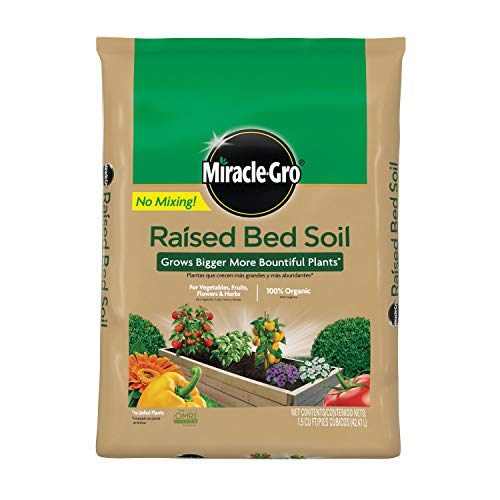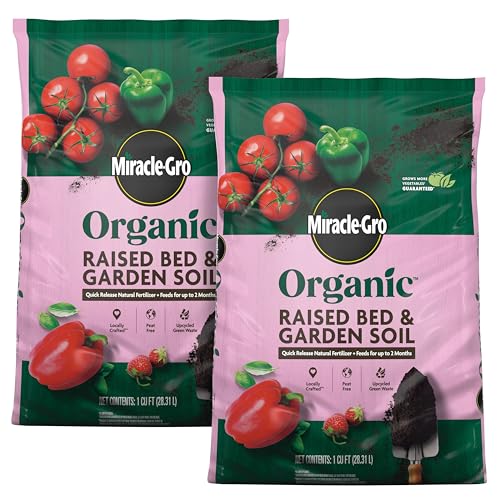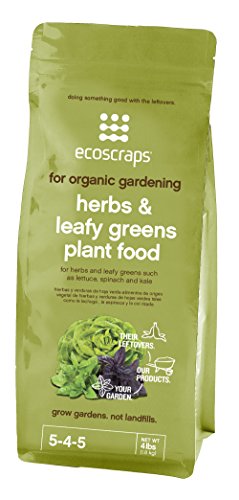Filling your raised garden beds with the right soil is the single most important step to a successful harvest. Unlike in-ground gardening, your plants are entirely dependent on the mix you provide, making the choice of soil a critical decision. The perfect blend provides a balance of moisture retention, drainage, aeration, and nutrients to support strong root development and vigorous plant growth.
With so many options on the market, from all-purpose mixes to specialized formulas, selecting the best one can feel overwhelming. This roundup simplifies the process by highlighting ten of the top-performing soils for raised beds. We’ve considered factors like organic certification, ingredient quality, and specific plant needs to help you find the ideal foundation for your garden.
Our Top Picks for Raised Bed Soil
- Espoma Organic Vegetable & Flower Garden Soil
- Miracle-Gro Raised Bed Soil 1.5 CF
- SUNGRO HORTICULTURE Black Gold Potting Soil
- FoxFarm Ocean Forest Potting Soil
- Miracle-Gro Organic Raised Bed & Garden Soil
- Burpee Premium Organic Potting Natural Soil Mix
- Espoma Organic Garden Soil – Two Pack
- Espoma Organic Raised Bed Mix
- EcoScraps for Organic Gardening Herbs and Leafy Greens
- Kellogg Garden Organics Raised Bed & Potting Mix
Espoma Organic Vegetable & Flower Garden Soil

Espoma’s Organic Vegetable & Flower Garden Soil is a fantastic choice for gardeners looking to improve their native soil when planting or transplanting. This mix is a rich blend of natural and organic ingredients, including nutrient-dense earthworm castings, which provide a gentle, natural food for your plants.
A key feature of this soil is the inclusion of Myco-tone, a proprietary blend of mycorrhizae. These beneficial fungi form a symbiotic relationship with plant roots, helping them to absorb more water and nutrients, which can lead to stronger, more resilient plants and improved yields in your raised beds.
Miracle-Gro Raised Bed Soil

Specifically formulated for the unique environment of a raised bed, Miracle-Gro Raised Bed Soil is designed to grow bigger, more bountiful plants compared to unfed plants. This 100% organic mix is a ready-to-use solution that takes the guesswork out of filling your garden beds, making it ideal for both beginners and experienced gardeners.
It is a versatile mix suitable for a wide range of plants, including vegetables, fruits, flowers, and herbs. The blend is calibrated to provide a well-aerated environment for roots to establish themselves quickly, promoting healthy growth throughout the season.
SUNGRO HORTICULTURE Black Gold Potting Soil

SUNGRO Black Gold is a consistently reliable, OMRI Listed organic potting soil that performs excellently in raised beds and containers. Its blend is ideal for all container-grown flowers, herbs, and vegetables, providing a solid foundation for plant health.
The mix is enriched with earthworm castings, perlite, pumice, and organic fertilizer. The perlite and pumice ensure great drainage and aeration, preventing soil compaction, while the organic fertilizer and castings give your plants a nutrient boost to start strong.
FoxFarm Ocean Forest Potting Soil

FoxFarm Ocean Forest is a premium, all-in-one potting soil solution that is highly regarded by serious gardeners. Its light, aerated texture is designed for all container plants, making it perfectly suited for the deep confines of a raised bed. The pH is pre-adjusted for optimal nutrient uptake, giving your plants immediate access to what they need.
This mix is packed with a powerful moisture-locking nutrient blend including aged forest products, sphagnum peat moss, earthworm castings, bat guano, and fish emulsion. This combination creates a rich, living soil that supports vigorous growth, branching, and lush foliage for everything from vegetables to ornamental shrubs.
Miracle-Gro Organic Raised Bed & Garden Soil

This peat-free soil blend from Miracle-Gro is an excellent sustainable choice for the eco-conscious gardener. Formulated with upcycled green waste, it provides an effective growing medium while reducing environmental impact. It comes with a quick-release natural fertilizer that feeds your plants for up to two months.
By eliminating peat, this mix helps conserve vulnerable peatland ecosystems. It is specifically designed for use in raised beds and in-ground gardens, providing a nutrient-rich start for your plants and continuing to feed them through the critical early stages of growth.
Burpee Premium Organic Potting Mix

Burpee’s OMRI Listed Organic Premium Potting Mix is formulated with plant food and coconut coir, making it a standout for moisture management. The coconut coir is a sustainable resource that helps hold the perfect amount of water for potted plants, reducing the frequency of watering and protecting plants from drying out.
This mix is perfect for containers and raised beds. It feeds plants instantly and then provides a slow-release plant food that continues to feed for up to three months, ensuring your vegetables, flowers, and herbs have consistent nutrition for a long, productive season.
Espoma Organic Garden Soil – Two Pack

This two-pack offering of Espoma’s Organic Garden Soil provides excellent value for gardeners with multiple raised beds or larger projects. It contains the same high-quality, rich blend of natural and organic ingredients as the single bag, including earthworm castings for nutrient enrichment.
Buying in a multi-pack is convenient and often more economical. This soil is intended to be mixed with native soil to improve its structure and fertility, making it a cost-effective way to build a healthy soil ecosystem in your raised bed garden.
Espoma Organic Raised Bed Mix

Espoma created this mix specifically for raised garden beds and outdoor containers. It is a rich blend of natural and organic ingredients, supercharged with earthworm castings, alfalfa meal, kelp meal, and feather meal to provide a complete nutritional profile for your plants.
Like other Espoma soils, it includes the Myco-tone proprietary blend of mycorrhizae. This specialized formula is engineered to create the ideal balance of moisture retention and drainage that vegetables and herbs need to thrive in the confined space of a raised bed.
EcoScraps for Organic Gardening Herbs and Leafy Greens

EcoScraps offers a specialized plant food that is formulated specifically for the growing needs of herbs and leafy greens like lettuce, spinach, and kale. If you are dedicating a raised bed to a salad garden, this product provides targeted nutrition.
It is an all-in-one particle fertilizer, which allows for a clean, even, and easy application. Each particle contains the full guaranteed analysis, ensuring uniform feeding across your garden bed and giving your leafy greens the specific nutrients they need for rapid, healthy growth.
Kellogg Garden Organics Raised Bed & Potting Mix
Kellogg Garden Organics is a trusted name in organic gardening, and their Raised Bed & Potting Mix is a solid, all-purpose choice. This mix is designed to be a complete, ready-to-use soil for your raised bed projects, helping to promote strong root development and plant vitality.
It is enriched with organic fertilizers and other natural ingredients to feed your plants. The blend is designed to maintain a good structure over time, resisting compaction and providing a healthy environment for roots to spread and access water and nutrients efficiently.
Buying Guide: How to Choose the Best Soil for Your Raised Garden Beds
Filling a raised garden bed is a big project, and getting the soil right is the single most important thing you can do for a successful harvest. I’ve made the mistake of using poor-quality soil before, and my plants paid the price. After a lot of trial and error, I’ve learned what to look for. The goal is to create a light, fluffy, and nutrient-rich environment that your plants’ roots will love.
First, let’s talk about texture. You want a mix that holds moisture but also drains well. If the soil is too dense and clay-like, your plants’ roots will drown. If it’s too sandy, water will run straight through, taking nutrients with it. A good sign of a well-balanced mix is that it feels crumbly and light in your hands. Many of the best soils for raised garden beds include ingredients like coir (coconut fiber), compost, and aged bark to achieve this perfect balance.
Next, consider the nutritional content. Your plants are going to be living in this soil for an entire season, so they need a steady supply of food. Look for mixes that include compost, worm castings, or well-rotted manure. These organic components are like a slow-release fertilizer, feeding your plants over time. Some pre-mixed soils even have added, gentle fertilizers like kelp meal or bone meal to give your seedlings a strong start. Remember, a soil rich in organic matter is alive with beneficial microbes and earthworms, which help keep your plants healthy.
Finally, think about the volume you need and your budget. Raised beds require a surprising amount of soil to fill. Bagged soil is convenient for small beds, but for anything larger, buying in bulk by the cubic yard is much more cost-effective. Many garden centers will deliver a truckload of bulk soil directly to your driveway. Also, pay attention to whether a mix is “topsoil” or “garden soil.” Topsoil is a base ingredient, often heavier and used to fill the bulk of a very deep bed. A garden soil or raised bed mix is usually a complete, ready-to-use product designed for the top, plant-growing layer. Starting with a high-quality mix from the beginning saves you from having to correct problems with fertilizers and soil conditioners later on.
Frequently Asked Questions
Can I just use dirt from my yard to fill my raised bed?
I strongly advise against this. The existing soil in your yard is often too compacted and may not have the right drainage or nutrient profile for a raised bed environment. Using it can lead to waterlogged soil and stunted plants. It might also contain weed seeds or soil-borne diseases. It’s much better to invest in a proper soil mix designed for raised beds to give your plants the best possible foundation.
How deep should the soil be in my raised garden bed?
This depends entirely on what you want to grow. For most vegetables, like tomatoes, peppers, and cucumbers, you’ll want a minimum soil depth of 12 inches. Deeper roots need more space, so 18 inches is even better. For shallow-rooted plants like lettuce and herbs, 6 to 8 inches can be sufficient. If you have a shallow bed but want to grow deep-rooting plants, you can loosen the native soil underneath the bed with a fork before adding your new soil to give the roots more room to penetrate.
What is the difference between potting mix and raised bed soil?
This is a common point of confusion. Potting mix is formulated for containers. It’s usually very light and fluffy, often containing no actual soil (it’s “soilless”), relying on ingredients like peat moss and perlite. Raised bed soil is typically heavier and contains a blend of topsoil, compost, and other organic materials. It’s designed to hold more moisture and nutrients in the larger volume of a raised bed while still providing good drainage. Using a potting mix in a large raised bed can be very expensive and may dry out too quickly.
Do I need to replace the soil in my raised bed every year?
No, you don’t need to start from scratch each spring. The soil will settle and decompose over the course of a growing season. Instead of replacing it, you should replenish it. Each spring, I add a few inches of a compost and soil mix on top of the existing soil and gently work it in. This tops up the nutrient levels and restores the volume that has been lost. This method is far more sustainable and cost-effective than a full replacement.
How do I calculate how much soil I need for my raised bed?
Figuring out the volume is a simple math problem. Multiply the Length (in feet) x Width (in feet) x Depth (in feet) of your bed. This gives you the total cubic feet. For example, a 4ft x 8ft bed that is 1 foot deep would be 4 x 8 x 1 = 32 cubic feet. Most bagged soil is sold in cubic feet, so you would need 32 bags if you bought one-cubic-foot bags. If you’re buying in bulk, suppliers sell by the cubic yard; since there are 27 cubic feet in a cubic yard, that same 32 cubic foot bed would require just over one cubic yard of soil.